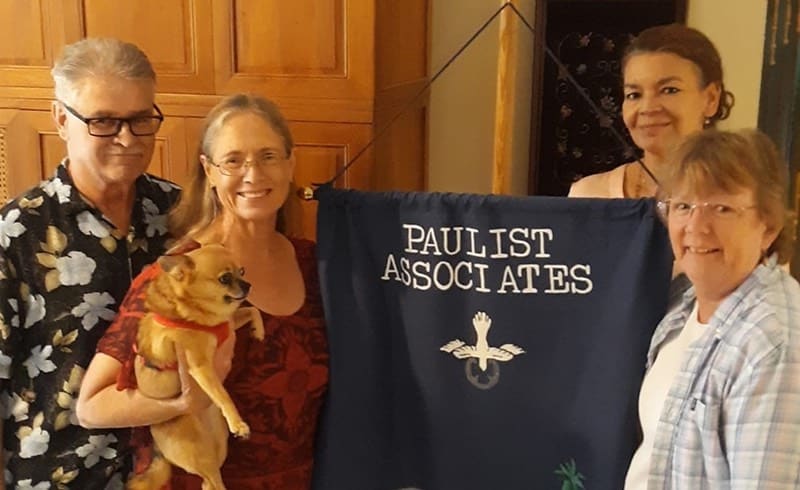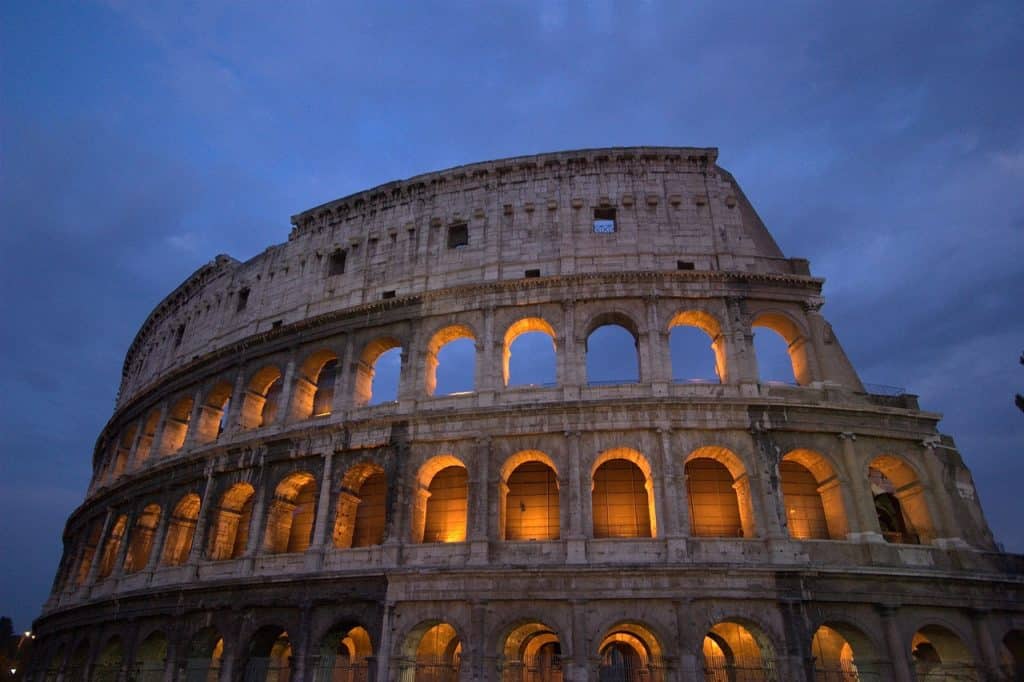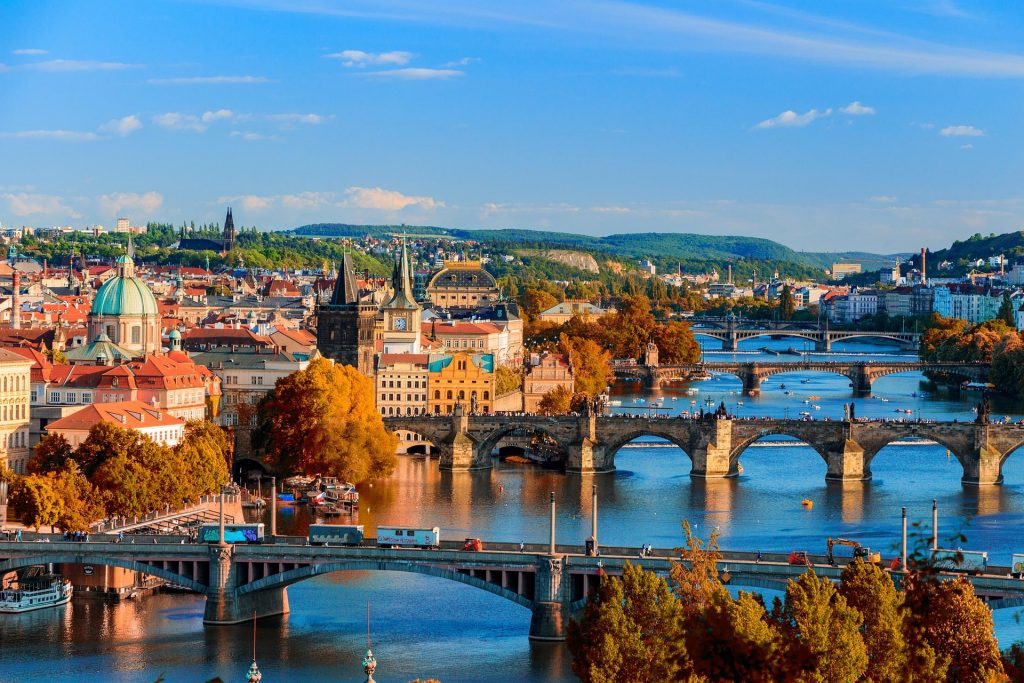September 2, 2019
Perfect for printing: Download this issue in PDF format
- A Senior Paulist’s El Paso Diary
- Isaac Hecker’s Early Journey
- Reading the Signs of the Times for Evangelization Today
- Renewing Promises and Updating List of Associates
- Looking for Newsletter Input
- Upcoming Paulist Pilgrimages
- Proposed Program
- Prayer for the Intercession of Father Isaac T. Hecker
- Contacts
- Promise
By Fr. Joachim Lally is a senior Paulist priest who lives in Grand Rapids
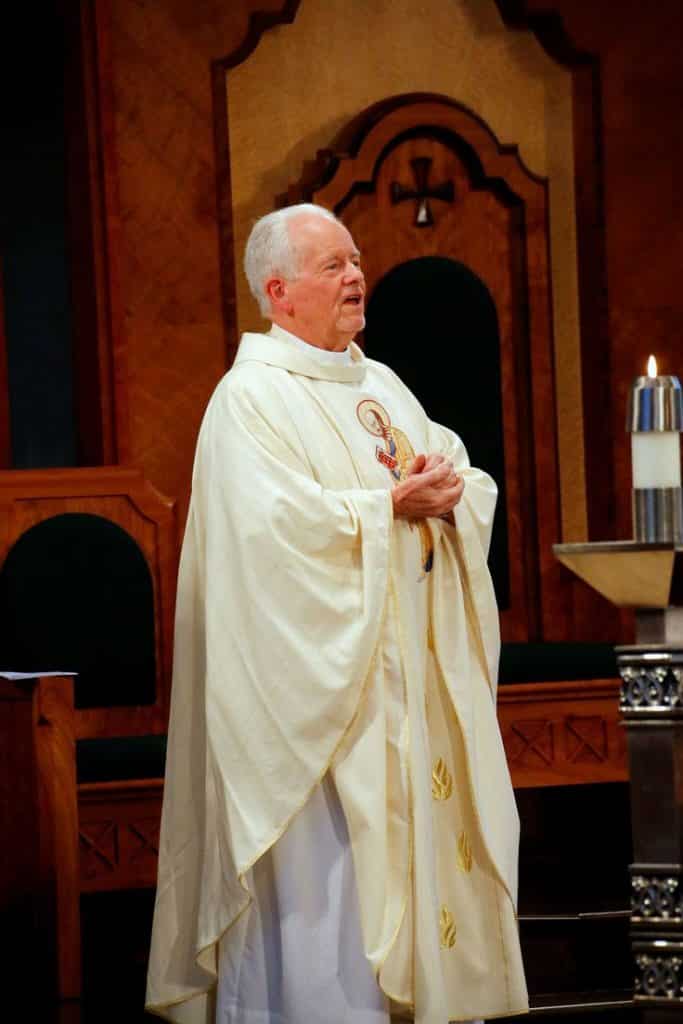
I am here in El Paso with four Dominican Sisters from Marywood in Grand Rapids.
We arrived around 7:45 PM last evening after an over 14 hour trip. We were scheduled to arrive at noon yesterday, but we missed the direct flight out of O’Hare due to weather conditions. We were routed through Dallas and then to El Paso. Only the luggage of two of the five of us arrived with us. The other luggage was delivered today.
Needless to say, we were all fairly exhausted. Three of us are in, or right next to, our 80s and two are younger (but not “young” by any means.)
Upon reflection we became very much aware that our fourteen-hour trip was nothing in comparison to the thousands who are fleeing violence in their native countries of Guatemala, El Salvador, Honduras, etc. We “endured” a few hours of delays in our luggage … but these migrant sisters and brothers are coming with mainly the clothes on their backs. No comparison.
We are just grateful that we can be here to offer a warm smile and expression of welcoming love … to help to counter balance so much hatred, prejudice and fear from so many others in our country.
Monday, Aug. 19, 2019
Visited the Casa De Refugiados (Refugee House)yesterday after noon and received an orientation. Surprise: majority of refuges are from Brazil who only speak Portuguese … (similar to Spanish which I am fluent in … but enough to be very confusing). I guess I will be using Google Translate a lot today. Am leaving in a few minutes to begin my 11-7 schedule at Los Refugiados. Celebrated the 8:30 AM Mass this morning at St. Mark’s with a Holy Hour after. I introduced the people to Centering Prayer (Oracion Centrante). I also asked for volunteers to give me rides to and from the Refugiados House … about 15 minutes away in a huge 135,000 sq. ft. warehouse that can accommodate up to 500 cots. They are cleared to be in the USA, at least until their asylum hearings. This facility offers showering facilities, orientation, calls to families and friends to ask them to buy them a bus or plane ticket to stay with them. They are also given a change of clothes, meals, basic supplies of hygiene, basic medicine, etc. (Leaving now. Not sure what to expect today … or any day. All in the hands of our unconditionally loving God.)
10PM: Today was my first full day at the Casa de Refugiados … wonderful, but exhausting. I did a little of everything … talking and praying with the just arriving migrants … doing tricks and magic for the children and many adults … dishing out spaghetti at the 5 PM meal from Salvation Army … transporting donated items in large boxes to a room where they would be sorted out … clothes, medicine, toys, shoes, etc.
Had opportunity to meet and talk with many other volunteers from Chicago, Kentucky, Episcopal priest from Massachusetts, who knows my friend, and former Paulist, David Killian, who became an Episcopalian priest in the Boston area, Dominican sisters from Wisconsin and Adrian, MI, volunteer doctors, and other medical personnel, etc. I left about 34 minutes early since there were no groups of migrants coming in. A new friend, Annette Vales, whom I met at Mass.
I have been so impressed by the dedication, professionalism and generous spirit of giving themselves without complaining. When I returned to St. Mark’s, where I am staying, I gave several talks to the teenagers of the parish, a few tricks, balloons, etc. … and then shared a lot of Richard Rohr teachings to the Bible Study group of about a dozen adults … then to bed …very, very tired.
Tuesday August 20, 2019
Today I ordered a dozen walkie–talkies from Amazon Prime for the staff and volunteers here at the Refugee House. This is sorely needed since it is a warehouse of 135,000 square feet … and close communication is vitally important. Am using part of the generous donations from friends in Grand Rapids, given before Ieft for El Paso. I also ordered a beginner’s course in Portuguese since so many of the migrants only speak Portuguese. Am sooooooooo grateful for these donations!
Spent most of today doing odd jobs, like moving donation boxes, handing out toothbrushes, soap, talking and praying with families as they waited on their cots to get transportation tickets to leave and stay with loved ones all over the USA., and doing tricks and making balloons for the families. I wish you could see their sad eyes light up as they see the disappearing handkerchief, multiplication of sponge balls, and balloon poodles, giraffes, etc.
I added something new today as I learned how to fill out an intake form for our guests. I also called an uncle of a family of five to ask him to purchase the bus tickets in Phoenix and send us the confirmation number so the guests can get their bus tickets and be on their way. We only see the families for a few days before they leave. But I get close to them quickly… and miss them after they have gone … although I know this is exactly what is needed for their family … a new start. They are so very patient and loving. I haven’t seen one angry person yet … despite all they have been through in the inhuman conditions of the detention camps. I don’t know how they cannot be really upset. They inspire me.
Just came from Dollar Tree where a friend and I picked out and bought every flip-flop sandal they had … about 135 of them. It’s the same problem we continue to have in our own Clothing Center Ministry at St. Andrew’s Cathedral … never enough footware.
Another great day at the Refugee House. Good thing I am so YOUNG, eh?
Sunday August 25, 2019
This morning I presided at the 9 AM Spanish Mass here at St. Mark’s church … about 500 people. Today was the day to encourage people to sign up for one or more of the almost 90 different ministries in this very active parish. The pastor mentioned about six times that he wanted the Mass to be over in an hour, since the next Mass would be at 30 minutes later and people needed to clear the parking lot. I set an all-time record for my shortest Sunday homily ever… about five and a half minutes. Many communions … and no way to shorten that. Finished at 10:03. I asked for clothes for teenagers and a wheel chair for the Refugee House.
A parishioner then drove me to the Refugee House where I presided at a Mass for the refugees and volunteers … bi-lingual! Could have been tri-lingual if I just knew some Portuguese.
Busload of guests arrived … mostly Spanish-speaking … hence no problem in registering them. Then shortly afterward … a bus load of only Portuguese-speaking. My Google Translate app got a good work-out.
Made many balloon animals for the kids from 3 to 5 PM… plus teaching my 11-year-old magician apprentice from Guatemala some tricks. He is so sharp … and caught on right away. He had a blast doing tricks for the other guests. He gets on a bus tomorrow for Philadelphia. I will miss his gentle spirit. His name is “Rocky”.
We had a medical emergency right before I left this evening and so we called the para-medics in. The one in charge asked his usual question: “English or Spanish?” … but the sick guest was only Portuguese-speaking. This was a challenge for everyone involved. I don’t know how he is doing.
On the way home I stopped at Big Lots and bought a lot of candy suckers to put in the travel bags for our guests. Then I found another Dollar Tree and bought 74 pairs of flip-flops. The 135 I had bought a few days ago went like the proverbial “hot-cakes”.
The four sisters with me from the Marywood Dominicans in Grand Rapids have been buying a lot of clothes after they get off from their 7 AM to 3 PM shift. Please pray for Sr. Chela since she has been quite ill and has not been able to work with us the last two days.
Let’s keep each other in prayer.
PS I have gotten over the “swimmy-headed” feeling of yesterday. Drinking more water.
All God’s most loving blessings and deep prayer…. Joachim
The first installment of a talk given as part of the Hecker Bicentennial Pilgrimage to Saint Patrick’s Old Cathedral: The Continuing Significance of Isaac Hecker’s Early Life and Vocational Discernment on May 17, 2019.
By Fr. Ron Franco, CSP
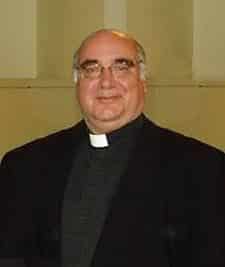
When Archbishop John Hughes (1797-1864) chose the location for New York’s new cathedral in the 1850s, he was criticized and ridiculed for planning to build so far from the city center. More prescient than his critics, Hughes understood the dynamic of urban growth and recognized what the city’s imminent expansion would make of his chosen site. The urban character of cathedrals reflects the historical fact that Christianity developed and expanded in the Roman Empire as an urban religion. It also reflects the religious reality that, just as cities are central gathering places which unite diverse people, Christianity is a gathering religion which assembles communities in central places, united by their common faith in the Risen Christ in a way which transcends their diverse origins.
It is important, therefore, to remember that Isaac Hecker was a very urban person. He spent most of his life in cities, and specifically this city, where he was born on December 19,1819, 200 years ago. Although this was not his neighborhood, had he been a Catholic growing up, undoubtedly he would have visited this cathedral on multiple occasions. Perhaps the first time he came here was the first time he visited Bp. John McCloskey (1810-1885), the Auxiliary Bishop of New York, later its Archbishop and first American Cardinal. That was on June 25, 1844, by which time he had more or less decided to become a Roman Catholic. In his Diary that day, he wrote: “I found him [McCloskey] to be a man of fine character mild disposition and of a broader education than any of the Catholics that I have had the pleasure of meeting with, He was acquainted with Brownson’s writings & Emerson’s and personally acquainted with Wm. Channing whom he had met in Rome … I am to wait until he comes back before I take any further steps toward being united with the Church”.
For all his name-dropping, Hecker would have probably been unaware of another important visitor to this cathedral 13 years earlier – the French aristocrat Alexis de Tocqueville (1805-1859), the 19th-century’s most famous observer and analyst of American society and institutions in the Jacksonian era, whose analysis of American society and religion in the 1830s would address the great problems of modern political and social life, which Hecker would eventually propose to resolve through religion. After attending Mass here,
Tocqueville had a conversation with a French-speaking priest, Fr. John Power, and wrote how he was struck by how the priest had “no prejudice against republican institutions.” A few weeks later, Tocqueville wrote in a letter “the religious state of this people is perhaps the most curious thing to examine here”. He also noted how better educated Protestants seemed to be attracted to Unitarianism. Later on, it would be similar types who would become Hecker’s primary targets for conversion to Roman Catholicism.
Like Tocqueville, Hecker would concern himself with the problem posed by the fundamentally fragmented character of American society with its fragile connections between individuals, and how to create a community capable of uniting individuals consistent with democratic, republican institutions – and the uniquely American experience of religion, severed from established status. For Tocqueville, American political experience showed Europe one way out of its 19th-century dilemmas. For Hecker later, American religious experience would do the same.
Of course, Tocqueville was not the only contemporary of Hecker who was interested in the significance of religion’s survival in society in spite of its political separation from the state. One year before Hecker came to this cathedral, Karl Marx (1818-1883, almost Hecker’s exact contemporary) had analyzed the contemporary separation of church and state as a political, but incomplete, emancipation from religion. He wrote that in such a state, one frees oneself “in an abstract, narrow and partial way … when he proclaims himself an atheist through the intermediary of the state … he is still engrossed in religion because he only recognizes himself as an atheist in a roundabout way, through an intermediary.”
Hecker’s own NYC neighborhood was what we now call the Lower East Side, where he grew up completely unconnected to Catholicism. His parents were German immigrants, married at New York’s Old Dutch Church in 1811. His mother was the more influential figure in the Hecker home. Early on, she became a devout Methodist and remained so the rest of her life. In the account of his life, which Hecker wrote in Rome in 1858, he stated that he received no religious instruction in his youth, religious belief being left for him to decide later on his own – a state of affairs he characterized as typical in the United States at that time.
Unlike today’s “Nones,” however, Hecker would have certainly have absorbed much of the basic Christian story, Christian ideas, and Christian morality – not just from his mother, but also from the surrounding culture. He briefly attended school, where the Bible would surely have been read and the Lord’s Prayer recited). He didn’t get much schooling, however, because like most people of his class he had to work. One of the images at the base of Hecker’s sarcophagus shows him as a young man delivering bread from his brothers’ bakery. Even as a boy working in the bakery, however, Hecker was already asking himself: “What does God desire from me? How shall I attain unto Him? What is it He has sent me into the world to do? These were,” he said, “the ceaseless questions of my heart, that rested, meanwhile, in an unshaken confidence that time would bring the answer”.
Meanwhile, Isaac’s two older brothers, John (born 1812) and George (born 1818), did very well in their bakery business, eventually became quite prosperous, and so were able to. support him financially as he focused on his spiritual interests.
The Hecker brothers were also very actively involved in Jacksonian-era New York Democratic Party politics, and John Hecker would remain so all his life. In his 1858 narrative, Isaac described his progression in three stages, political to social, to religious:
“The first channel in which my mind was directed in the discovery of the truth and of the means of benefiting my fellow men, was that of politics, a subject which is one of the earliest that occupies the thoughts of everyone born in a republic. Political reform was the first, therefore, to present itself as the remedy for existing evils and of rendering mankind happy.
Gradually, however, his thought evolved from political to social to religious concerns. “The many miseries and the great wretchedness that exist in modern society, sprung,” he concluded, “from the want of the practical application of the moral principles of Christianity to the social relations between men”. This turned his attention to religion, and over several years he examined the principal Protestant sects, none of which, satisfied him. The US in the 19th century was a diverse religious marketplace, in which you could shop for whatever religion suited you.
Then, as now, there was considerable movement from one church, denomination, or sect to another. Confident that “it is not reasonable to suppose that [God] would implant in the soul such an ardent thirst for truth and not reveal it,” he continued his search for the truth, eventually finding it in the Catholic Church, “the place,” as he put it in his 1858 account, “where it is supposed among Protestants the least to exist.”
According to his 1858 account:
“The Catholic Church burst upon my vision as the object to which all my efforts had been unintentionally directed. It was not a change, but a sudden realization of all that had hitherto obscurely captivated my mind, and secretly attracted my heart.”
In thus describing his spiritual quest, Hecker wanted to emphasize what would become his lifelong conviction that Catholicism was consistent with and indeed the true fulfillment of the aspirations of human nature – his 19th-century version of a traditional Catholic idea, the theme of St. Augustine’s Confessions: “You have made us for yourself, O Lord, and our heart is restless until it rests in you.”
Along the way, his political and social interests had been largely absorbed into his religious search, and he replaced political and social analysis with religion, but he never totally abandoned his earlier ideas – and still affirmed them when he reflected on Orestes Brownson at the end of his life.
(Continued in the October, November and December issues of Associates World.)
By Frank DeSiano, CSP, Washington, DC
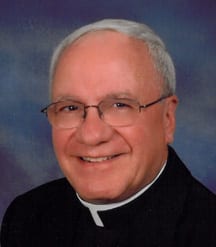
No one serves as a missionary disciple in a vacuum. No, the surrounding culture and environment deeply affect both what a missionary says and how it is said. One of the very exciting observations about the New Testament is how Christian faith grew through its encounter with the ancient cultures of Greece and Rome. In fact, if you wanted to read the “original” words of the New Testament, they would all be written in Greek—not in Aramaic, the language Jesus spoke in daily life, and certainly not in Hebrew, the language of ancient Israel. Earliest Christian faith is a perfect example of respond to a new environment.
We can look back on those ancient cultures and study them. That is one thing. It’s entirely different to try to study a culture we live in today because it surrounds us so intensely. We it is very difficult to pull back from our present years and see the big patterns. All the more so in a culture as “hot” and changing as the one in which we live. We experience daily things that were barely imagined fifty years ago, starting with the little computers we carry around with us all the time—our cell phones. Or transportation at the pace and rate in which people experience it today. Or the interface of different cultures because, today, in many places, on one street one can meet people from Europe, South Asia, China or Japan, Latinos from various cultures south of us, and Africans both north and south of the Sahara. Even more, we can turn on our TVs and watch content from any and all of these cultures, and then publicize our feelings over social media.
So much interchange, so many events, so many people playing important roles in culture—how do we know what is happening? Does this or that movie represent a trend? Or a string of mass killings? Or the closing of plants in several states? Or the opening of new factories in other states? Does the election of this or that person represent something profound, or just one more element in the stew of modern life?
Current US Faith Culture
Despite all the difficulties of reading one’s own times, we can see some very clear trends happening before our eyes in today’s United States. These trends form the context in which we are called to be missionary disciples. If we think our parishes primarily serve as protectors, keeping culture at bay while we have our own little piece of culture, we should think again. Parishes ultimately serve as membranes through which elements of faith and culture go back and forth. Why? Because we parishioners live in the actuality of today’s world and, no matter how hard we wipe our shoes when we enter a church building, we are still bringing that world into the church. That world, its attitudes, and its assumptions.
Here are some megatrends that have been affecting parish life for more than half a century. Reflect on the ones that have impacted on your parish the most:
1) America has become suburban and urban in a new way, causing massive disruption of our experience of parish and church.
People can see this without too much effort. We can think of grandparents and great grandparents who lived in “little Italy” or “German town” or some other part of the city with new immigrants streaming in. In rural areas, towns themselves formed cultural and ethnic enclaves. For Catholics, the American parish played a crucial role during all this immigration. It held nationalities, cultures, and families together. People saw themselves as becoming part of this new American culture through the parish which introduced socializing processes that smoothed the transition. Even more, parishes built and opened Catholic schools; through these schools, Catholics had a direct pipeline to successful employment from grade school though high school –and into those Catholic colleges opened in most large cities by congregations like the Jesuits, the Christian Brothers, the Sisters of Charity, or the Franciscans.
When we started building suburbs, things radically changed. No longer did our distinctness matter (language, food, dress); in some ways these even counted against us. Everyone had lawns — not only did we have to mow them; we saw them as defining our own turf. Everyone had back yards with grills for hamburgers and hot dogs, all very American. Children started going to public schools because they were better, educationally, than some Catholic schools. Parishes offering CCD became the new norm. We hung out with our neighbors, whatever their religion, reinforcing the notion that their faith might be just as good as ours.
In this way, American parishes changed from being refuges needed by newcomers to becoming objects of choice in a suburban world based on movement and preference. We went to church because we chose to go — and could just as easily choose not to go. We no longer had neighbors living beside and on top of us, exerting a pressure to conform. Perhaps parish plays an important organizing role for some ethnic groups today, Latinos or Asians.
For most of us, however, parish means relatively empty urban buildings, and semi-filled suburban ones. By the way, when people moved back into cities, they didn’t move back as struggling immigrants; more likely, they are urban yuppies, well formed by suburban assumptions, for whom church is just one more option in their lives.
2) Modern faith patterns, espousing a culture of choice, disrupt traditional religious patterns, including sacramental ones.
Because modern attitudes have made religion an object of choice, modern church leaders have dug into the American revival tradition to offer new forms of church gathering, through megachurches and evangelical assemblies, which have drawn millions of people from traditional Christian church groups (Catholics, Episcopalians, Lutherans, Presbyterians, and even Methodists who were the original revival organizers) into new church associations that, almost by definition, strip away the forms of identity of these traditional congregations. The American religious mind is congregational—meaning individuals form congregations and can switch from one to another without much cost.
Here arise the sentiments that we don’t need altars, or vestments, or scholars, or traditional music. No, these churches offer something different, a way to experience religion directly by the style of preaching and singing. We do not have liturgy; we have programs developed the previous week! Someone like Rev. Billy Graham realized how risky this was because people might go to a revival and then not be attached to any church afterwards. That’s why, later in his revivals, he always worked with local churches of all denominations. But the cork popped out of the bottle, and now people in modern society, have no clear identity with church, nor any necessary connection with traditional worship, including the Mass. Most Catholics keenly note local “new congregations” that spring up in their area—and the many Catholics who start attending them—at least for a while. The end result is that church is a preference (or not), rather than as part of our identity. Congregational religion us, ultimately, personal religion.
3) New models of growing up have replaced earlier ones, leading to different ways of relating to faith and church.
Parents and grandparents will recognize the effect of this almost immediately. For people over seventy, growing up meant becoming like your parents or grandparent. Back in the 40s and 50s, we still named children after their elders. People grew up, usually coming to maturity when they graduated high school, marrying soon after, and working in the same company as their families.
But starting in the 1960s and getting a big boost from the opening of state universities and colleges, growing up changed its meaning. Instead of becoming like one’s parents, growing up meant discovering who you were. Creating your own identity from a palette of options became the assumed way of entering adulthood. In addition, the age of maturing moved further back. Graduating high school was just the beginning as people made their way through college and graduate studies, often maturing in their late 20s or early 30s. Some of this reflects the growth of women’s movements and the professionalization of much labor because people had to go to college, and women had to be as free as men in terms of career. As a result, people marry later, have children later, settle down later—and get involved in church later (if they ever do).
4) Changes in modern life have deeply affected patterns of relationship and commitment; as a result, people experience a lot of personal and sexual experimentation which, in turn, affects religious identity.
In the 40s and 50s, youth would start maturing through high school, swooning to the sounds of Frank Sinatra or Connie Francis. Since marriage was not far off, people had much less time to experiment sexually, and devices to prevent conception had not yet become widely available. Starting in the 60s, and moving dramatically forward in the 90s, specifically with the delay of marriage and commitment, a new world has evolved, one unthinkable four decades earlier. This world assumes at least casual sexual interaction (“hooking up”) and creates enormous pressure on young people. One movie, The Dating Project, not only documented this phenomenon, but showed a philosophy professor trying to teach her college students how to go out on a date, how to encounter people without sexual assumptions, just to meet and talk.
It is not difficult to imagine the kind of dislocation this has caused with traditional Christian teachings, based on the entirely reasonable principle that people should not engage in sexual activity until they are totally committed to each other. How young people navigate their own personal development, including their sexuality, and integrate this with the teachings of their churches, remains an enormously difficult undertaking for young people, and a clear friction point for churches.
The Results
We see the results of these enormous changes every time we go to church because the major population there will be people sixty and older, with younger people progressively missing, until we get to the youngest generations (Millennials and younger) who are least likely to go the Mass. In plain numbers, sixty percent of Catholics tend not to attend Mass, and 40% of Catholics attend at least once a month or (for some 20%) weekly.
This creates an enormous mission field for Catholics today. We do not need to be missionaries in Zimbabwe or Beijing. We need to be missionaries in our own homes, neighborhood, and parish communities. Because every Catholic absent from Mass is someone starving for the concrete contact that God has given us in Jesus Christ; they are pulled away from the most precious gift God has given humankind. And, without contact with Christ, how does one make one’s way through the crucial decisions of life? How does one preserve personal integrity or deep values? The answer: not easily.
Therefore, the need for helping all committed Catholics see themselves as missionary disciples has become transparently clear. Every baptized and practicing Catholic has an irreplaceable gift to bring to another. Equipping ourselves to do this means making ourselves resources of faith for those whose lives are smaller because they don’t have it. It also means developing a culture of commitment and identity in today’s world which does not have the social props of former decades.
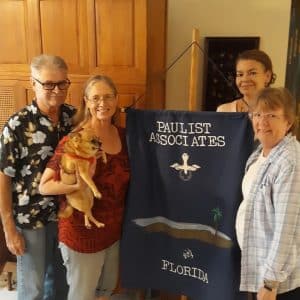
We are always happy to hear about new Associates taking promises as well as current Paulists renewing theirs. Please post notices and photos on Facebook and let us know so we can add the information in this newsletter.
When these renewals take place, it would be helpful to all if the local coordinator would send an updated list of Associates to Kathleen Lossau so she can keep our contact list current. Please email contact information for those taking first promises and those renewing promises as well as a list of those who have opted not to renewing promises to Kathleen Lossau at [email protected].
New material for Associates World is always welcome. We would love to hear what is going on with your local organization. If you have material for the newsletter please contact Denis Hurley at [email protected].
Visits to the Vatican Museum, Catacombs of Santa Priscillla, Tre Fontane, and St. Paul’s Outside the Walls. Possibility of private audience with Pope Francis or Mass with Pope Francis. Daily conference on reconciling and welcoming returning Catholics.Pilgrimage limited to 20 registrants. Full details will be posted here and will be e-mailed to Landings International and Paulist Pilgrimages newsletter subscribers as they become available.
An 11-day pilgrimage with Paulist Father Thomas A. Kane on an unforgettable pilgrimage to Eastern Europe. See the once-a-decade performance of the world-famous Oberammergaupassion play and explore the breathtaking cities of Budapest, Prague, and Vienna.
It is with great pleasure and excitement that I invite you to join us on our Splendors of Eastern Europe and Oberammergau pilgrimage with a once-in-a-lifetime opportunity to attend the world famous Passion Play in 2020. The villagers of Oberammergau first performed the play in 1634 in fulfillment of their promise to God for sparing them from the Black Plague, and it has been presented there every ten years since then.
Our journey will take us to some of Europe’s most interesting countries including the Czech Republic, Hungary, Austria and Germany. The scenery is absolutely spectacular as we travel through the plains and valleys of the magnificent Eastern European countryside. The points of interest are very diverse, spotlighting historical places and natural wonders. We will also celebrate the liturgy in some wonderful churches along the way.
In addition to our time in Oberammergau, we will have the opportunity to enjoy visits to Prague, the beautiful 1,000-year-old capital of the Czech Republic; Budapest, Hungary’s enchanting capital on the Danube River; Vienna, Austria’s elegant city with an old world ambience and a rich musical heritage; and Munich, the capital of Bavaria.
The price of our tour includes roundtrip airfare, first class/select hotels and guesthouses in Oberammergau, most meals, first class admission tickets for the Passion Play, the services of a professional tour director and sightseeing in a deluxe motorcoach.
Submitted by Mike Kallock, CSP.
(It is strongly suggested during the Bicentennial Year of Hecker’s Birth that all groups follow the basic theme for the designated month as taken from Isaac Hecker for Every Day edited by Ronald Franco, CSP)
OPENING PRAYER:
Come Holy Spirit, fill the hearts of your faithful and enkindle in them the fire of your love. Send forth your Spirit and they shall be created. And you shall renew the face of the earth. O God, who, by the light of the Holy Spirit, instructed the hearts of the faithful, grant that, by the same Spirit, we may know what is right and always rejoice in the Spirit’s consolation, through Christ our Lord. Amen.
THEME: HECKER’S VISION OF THE CATHOLIC CHURCH IN AMERICA
Hecker envisioned that Catholicism together with America’s energy, values, and ideals – a Catholic America – would become the greatest spiritual force for good in the world.
FROM THE WRITINGS OF FATHER HECKER:
When I began to speak and labor for the conversion of the United States as a point to be aimed at, twenty-five years ago, it was thought an extravagant idea, born of a heated imagination and enthusiasm. Now it would be considered a lack of faith and zeal not to think so. May not the same be true of my present views and aims? (Paulist Vocation, 91)
The conviction is increasing among its more enlightened citizens, that the Catholic Religion alone is able to give unity to a people occupying so vast an extent of territory, embracing such a diversified population, & of such a variety, & even conflicting interest. They feel also the need of a Religion like its own institutions which embraces the whole human race in one brotherhood, and with its divine sanction and powerful influence, will lead and assist it to realize its great destinies. (Paulist Vocation, 265-66)
The discerning mind will not fail to see that the republic and the Catholic Church are working together under the same divine guidance, forming the various races of men and nationalities into a homogeneous people, and by their united action giving a bright promise of a broader and higher development of man than has been heretofore accomplished. (Church and the Age, 99)
SHARE WITHIN YOUR GROUP:
How do you react to Hecker’s vision of a Catholic America? Was he too optimistic, naïve? How would you today adapt/change Hecker’s vision in North America (USA, Canada, Mexico)? How do you think today’s Paulists and Paulist Associates should be living out Hecker’s vision of a Catholic America?
CLOSING PRAYER:
Send the fire of your Holy Spirit deep within us, Lord, so that we can serve you with devotion and please you with our hearts, minds, and actions. We pray this through Christ our Lord. Amen
Heavenly Father, you called your servant Isaac Thomas Hecker to preach the Gospel to the people of North America and through his teaching, to know the peace and the power of your indwelling Spirit. He walked in the footsteps of Saint Paul the Apostle, and like Paul spoke your Word with a zeal for souls and a burning love for all who came to him in need.
Look upon us this day, with compassion and hope. Hear our prayer. We ask that through the intercession of Father Hecker your servant, you might grant us (state the request).
We ask this in the name of Jesus Christ, Your Son, Our Lord, who lives and reigns with You and the Holy Spirit. One God, forever and ever. Amen.
When you pray this prayer, and if you believe that you have received any favors through Hecker’s intercession, please contact the Office of the Cause for Canonization of Servant of God, Isaac Hecker at [email protected]. Visit the web site: isaachecker.org to learn more about his life and the cause for his canonization.
Paulist Associates National Director
Mike Kallock, CSP
Paulist General Office
New York, NY 10023
Board Members
Carol Wagner Williams
Tuscon, AZ
Frank Desiderio, C.S.P.
Katherine Murphy Mertzlufft
Columbus, OH
Joe Scott, CSP
David Rooney
Chicago, IL
Mary Sullivan
Boston, MA
I believe that I am drawn by the Holy Spirit to the spirituality and qualities of the Paulist Community. I have discerned both by prayer and study that God calls me to become associated with the Paulists. I promise that I will pray for the works of the Paulist Society, meet with others, who are also members of the Paulist Associates, for spiritual sharing and formation; and I seek to embody the apostolic qualities of the Paulists in my daily life.
Attentive to the Holy Spirit and faithful to the example of St. Paul and the charism of Father Isaac Hecker, I commit myself for one year of membership in the Paulist Associates.
